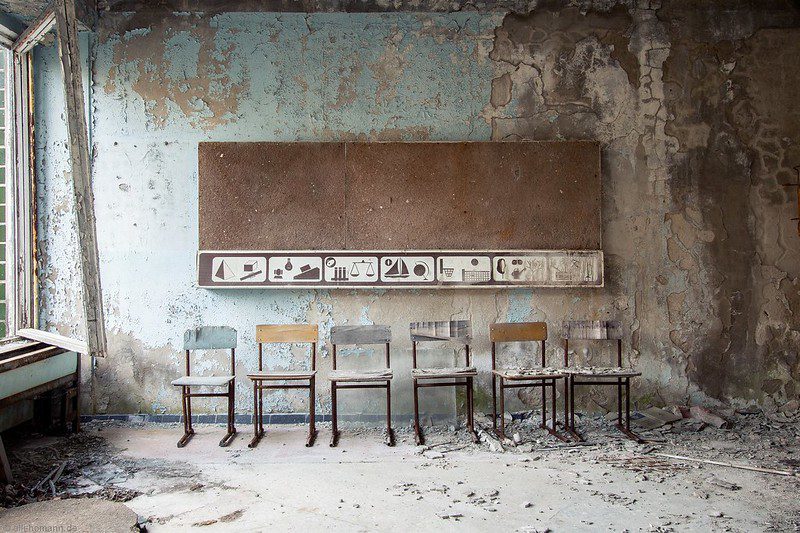This essay briefly examines the possible components of a ‘human security approach’ to African peace missions and security sector governance/reform.
There are three overlapping general frameworks for human security (MacFarlane and Khong 2006). The first (‘Canadian’) focuses primarily on protection from organized violence; the second (‘Japanese’) on protecting and promoting a broad range of human capabilities; and the third (‘European’) is an amalgam of the two.
The ‘Canadian’ approach is a shift from paradigms of security focused overwhelmingly on sovereign states, to those focused on individuals. It has been associated with the doctrine of ‘sovereignty as responsibility’ (Rothchild and Deng 1996) and the report of the International Commission on Intervention and State Sovereignty (ICISS 2001) which coined and promoted the norm of the ‘responsibility to protect’ (R2P). Analytical work has focused on the human cost of war and the plight of individuals caught up in political violence and armed conflict (Human Security Report 2005; 2013), while policy work has revolved around: (a) the international diplomatic, financial and military instruments for deterring and punishing violence against civilians, and mandating armed interventions; and (b) the responsibilities of peacekeeping missions to protect civilians in their areas of operation.
The ‘Japanese’ approach, is associated with the broadening of economic development to take account of a broad spectrum of human wellbeing issues, including especially resilience in the face of shocks and stresses (UNDP 1994; Sen 1999; Alkire 2005). This approach also focuses upon human empowerment. In the Report of the Human Security Commission (2003), Sadaka Ogata and Amartya Sen articulate a distinctive view of human security, in which ‘[a]chieving human security includes not just protecting people but also empowering people to fend for themselves.’ (p. 4). In a notable divergence from the immediately prior report of the ICISS, the Human Security Commission emphasized how human security complements state security, and how empowerment is a complement to protection:
People’s ability to act on their own behalf—and on behalf of others—is the second key to human security. Fostering that ability differentiates human security from state security, from humanitarian work and even from much development work. Empowerment is important because people develop their potential as individuals and as communities. Strengthening peoples’ abilities to act on their own behalf is also instrumental to human security.
Ogata and Sen do not explicitly apply this insight to the security sector, but it would be logical to extend it in this direction. This would imply that ‘R2P’ should be complemented by, or subsumed within, a principle of supporting the security empowerment of communities.
The ‘European’ approach to human security has combined elements of both traditions, with a particular focus on how to operationalize a human security approach in the context of a possible doctrine for armed interventions by the European Union (Barcelona Group 2004). This is most comprehensively articulated by Mary Kaldor (2007) to include the following elements: (a) promoting human rights; (b) advancing economic development in the broad sense of enhancing all aspects of well-being; (c) seeking peace and security; (d) promoting legitimate political authority and good governance; and (e) adherence to multilateral principles with a regional focus. The operational character of this approach makes it a useful starting point for a human security paradigm for African peace missions.
All of the three approaches escape from the trap of making the state the exclusive referent for security, but all retain the state as the primary provider of human security, except for those exceptional circumstances in which it can be overruled by an international intervention.
A major difficulty with this arises from the empirical-historical reality that states are no longer the exclusive providers of security in many parts of the world, and in fact that international peace operations are no longer time-limited interventions that can either restore the status quo, or create a capable and democratic state as a fully-accredited member of the international community, in short order (HIPPO 2015). Rather, peace operations are becoming missions without end, an international layer of security governance that continues indefinitely (de Waal 2015). Additionally, ‘non-state actors’ have become integral and indefinite features of the security landscape.
In response to this, the concept of ‘public authority’ should be introduced into the human security framework, to represent the multiple potential providers of security, from the local to the international. This begins with a simple recognition of empirical realities. It leads to a normative project, of developing mechanisms for ensuring that the various levels and mechanisms for security provision are handled. This entails a shift from the (top-down) ‘responsibility to protect’ to a (bottom up) approach founded on community empowerment over the local security agenda.
References
Alkire, Sabina, Valuing Freedoms: Sen’s capability approach and poverty reduction, Oxford, Clarendon Press, 2005.
Barcelona Group, ‘A Human Security Doctrine for Europe: The Barcelona Report of the Study Group on Europe’s Security Capabilities,’ Barcelona, 15 September 2004.
De Waal, Alex, The Real Politics of the Horn of Africa: Money, war and the business of power, Cambridge, Polity, 2015.
HIPPO (High Level Independent Panel on United Nations Peace Operations), ‘Uniting Our Strengths for Peace: Politics, Partnerships and People,’ New York, 2015.
Human Security Commission, Human Security Now, New York, United Nations, 2003
Human Security Report Project, Human Security Report 2005: War and Peace in the 21st Century, University of British Columbia, Human Security Centre, 2005.
Human Security Report, Human Security Report 2013: The Decline in Global Violence: Evidence, Explanation, and Contestation, Vancouver: Human Security Press, 2013
International Commission on Intervention and State Sovereignty. The Responsibility to Protect, Ottawa, International Development Research Centre, 2001.
Kaldor, Mary, Human Security: Reflections on Globalization and Intervention, Cambridge, Polity, 2007.
MacFarlane, Neil, and Yuen Foong Khong, Human Security at the UN: A critical history, Bloomington, Indiana University Press, 2006.
Rothchild, Donald, and Francis Deng, Sovereignty as Responsibility: Conflict Management in Africa, Washington DC, Brookings, 1996.
Sen, Amartya, Development as Freedom, Oxford University Press, 1999.
UNDP, Human Development Report, New York, 1994.
